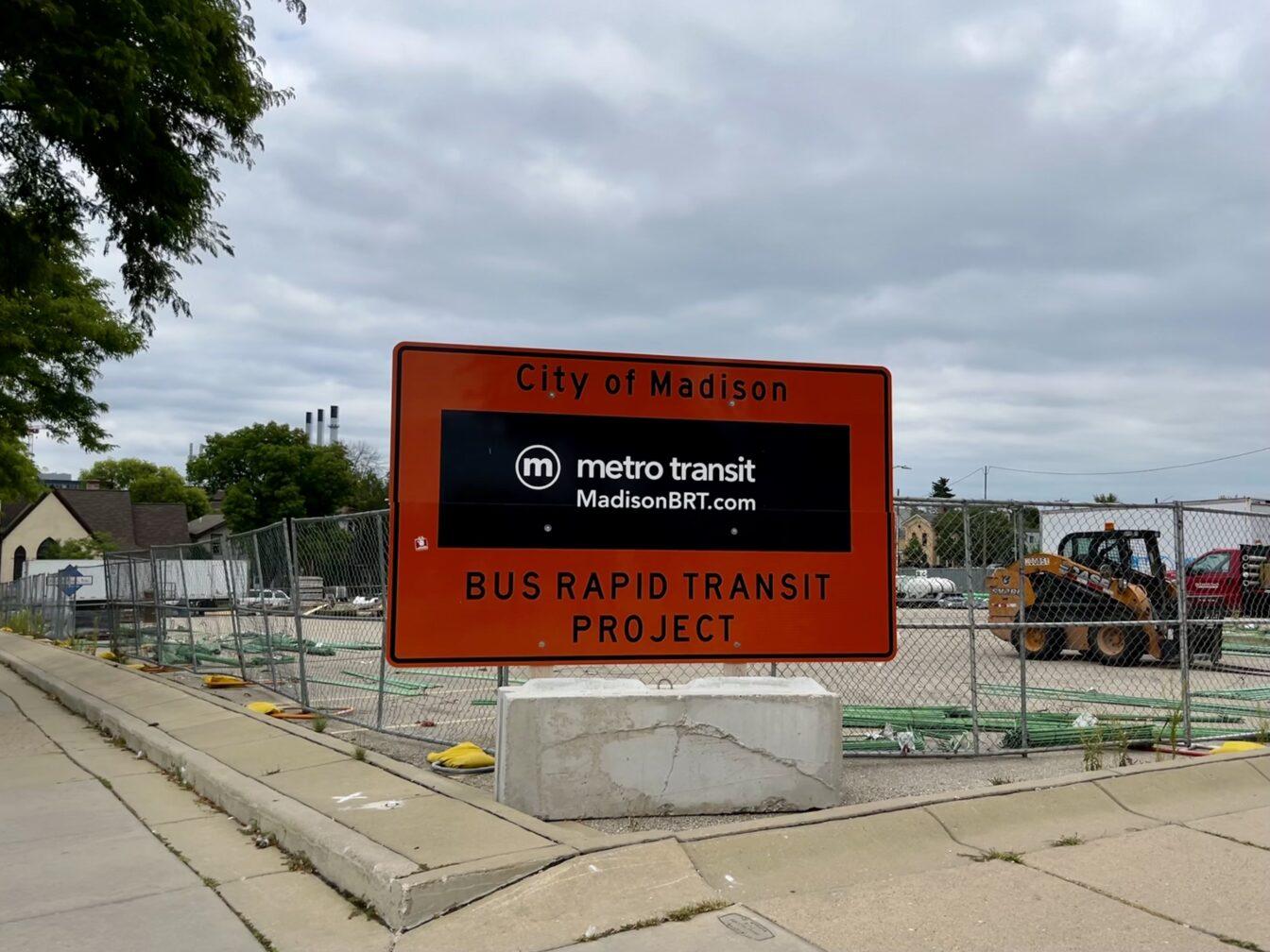Members of the City of Madison’s Department of Planning, Community and Economic Development hosted two public meetings about the redevelopment of the Brayton Lot — also referred to as Block 113 — last week. The same presentation was given to in-person attendees Tuesday evening and virtual attendees Wednesday afternoon.
The Brayton Lot consists of two acres of land downtown, just three blocks from Capitol Square. The City of Madison owns the land, and DPCED member Bill Fruhling said the discussion surrounding the buildings for this land has been ongoing over the past three decades.
Rebecca Cnare, also a member of the DPCED, told attendees that buildings will be built on the parking lot as part of the redevelopment — but the City is not yet sure what will go inside each building.
Currently, the Brayton Lot is being used as a short-term construction staging area as the City establishes a Bus Rapid Transit system, using both local and federal funding, according to the City of Madison. Once the site is no longer needed for this purpose, redevelopment can begin on the lot, Cnare said.
The official transition away from a parking lot is likely to take a couple of years. But it is important the City keeps the public involved, Cnare said.
Attendees were provided the opportunity to provide feedback at the meetings — using both voting and asking questions.
During the virtual meeting, officials used Zoom’s polling feature to engage attendees and to receive feedback on the development and what people are hoping the Brayton lot is used for. The same questions were asked during the in-person meeting the day prior, using clickers to vote.
The results at the virtual meeting indicated the majority of attendees were City of Madison residents, and survey questions included priorities regarding the Brayton Lot redevelopment — such as what type of housing unit should be constructed, the size of housing units, what other uses the development should have, design priorities and what the attendees believed the overall highest priority in regards to the development should be.
The results for other uses of the buildings and design priorities were split across the board. But the results indicated a high percentage of attendees prioritized affordable housing.
City Council District 8 Ald. MGR Govindarajan said that because of the city’s ownership of the land, there are unique opportunities to create affordable housing.
“This is the rarest opportunity the City has to build affordable housing in downtown Madison,” Govindarajan said. “The reason for that is because the City owns the land. When we see other buildings being built, it is because private developers want to build them — and they can charge however much they want because they own the land, they own the building, they’re doing everything. And the city cannot, by state law, mandate affordability unless we own the land.”
District 2 Ald. Juliana Bennett echoed this sentiment, stating it is important this development include affordable housing.
“This development needs to include affordable housing,” Bennett said. “From the different community input sessions, that is the number one priority. It’s a priority laid out by the alders and by the mayors and obviously it’s desperately needed. It’s what our residents are calling for.”
Govindarajan emphasized the importance of being involved in redevelopment discussions and conversations — to ensure City officials are receiving input from a diverse range of stakeholders, including renters.
Feedback regarding the Brayton Lot redevelopment can be given through a survey administered by the redevelopment team. The survey is open to all residents of Madison.
Feedback from the meetings and survey will be used to draft proposals for the City Council to approve. Cnare said the project is estimated to take four to six years to complete.


